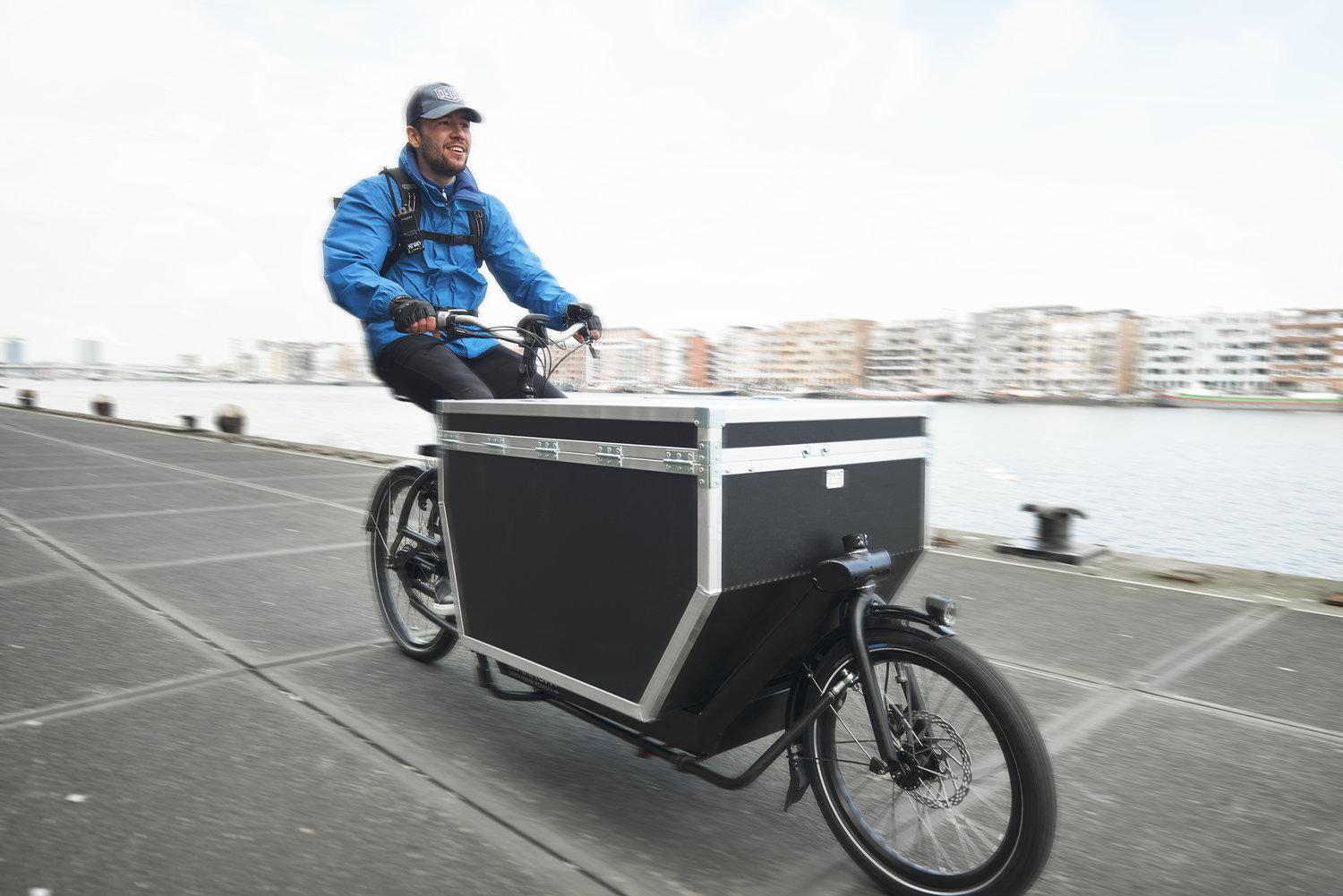
The city of London is rolling out a new program that incentivizes companies to switch some or all of their deliveries from motorized transport to bicycle-powered options.
London has some serious smog problems. Researchers at Kings College London conducted a study that revealed almost 10,000 deaths a year could be attributed to the city’s pervasive air pollution, and the mayor of London, Sadiq Khan, has called the city’s air quality “a matter of life and death”.
The city of 8.8 million has not been idle in addressing the issue, however, and a number of solutions have been implemented in recent years to combat the problem. The most recent effort was designating a portion of central London as an Ultra Low Emission Zone (ULEZ), which imposes a steep fare on vehicles that utilize the road and don’t meet very strict emissions standards. This is in addition to the city’s ongoing anti-pollution program that simply charges all cars fees for using the roads in the same general area.
While commuters are likely concerned about whether or not their car is up to snuff, businesses in the affected location have an additional reason to fret: rising delivery costs. The price to get a shipment into a restaurant or retail store in the middle of a city is already expensive, but bringing those same, gas-guzzling cargo trucks into the ULEZ will be prohibitively expensive (£100, or $130, for vehicles over 3.5 tons, as a matter of fact).
The city showed impressive foresight in addressing this issue by bringing aboard Team London Bridge as a partner to help roll out sustainable alternatives for businesses. Their primary offering is a program called Bikes for Businesses, which incentivizes companies to switch some or all of their deliveries from motorized transport to bicycle-powered options.
Fortunately, the program is more in-depth than throwing money at bike purchases. Team London Bridge consults with companies directly and supports them through every step of the transition so that they can set up bike deliveries as quickly and easily as possible. The team begins by identifying what deliveries are capable of being transported by bike, recommends operators, and wraps it up by offering a tidy subsidy.
We rarely think of bikes as more than tools for exercise and leisure, but that’s not the case elsewhere. Many cities around the world embrace the humble bicycle, or the modern electric bike, as a primary method of transport. The benefits are manifold:
- No emissions
- Cheaper upfront cost and maintenance than a vehicle
- More reliable journey times
- Little infrastructure required for loading/unloading and parking
The most obvious drawback is, of course, the capacity of a bicycle-driven delivery. Although there are a wide range of versatile cargo bikes, none of them come close to matching the sheer space of a cargo truck.
Despite that glaring issue, 87 percent of the businesses within the ULEZ and broader London Bridge area have expressed interest in exploring bicycle deliveries. It’s not a novel concept to entrepreneurs in the area, however, since 23 percent of the businesses there already use bicycle deliveries in some form or another.
Team London Bridge expects that the injection of cargo bicycles and other e-bike deliveries into the congested transport interchange will benefit both the community and the businesses. Bikes for Businesses is just one facet of their London Bridge Cycling Strategy which aims to make the area quieter, safer, less polluted, and more efficient.
Local businesses are in agreement. Joyce Wilson, a local business owner, said, “The business community in London Bridge is keen to champion cycling as it supports many of their own objectives of increasing health and wellbeing for staff and promoting sustainable practices.”
Image credit: Team London Bridge

Patrick Grubbs is an environmental writer with a keen interest in the interactions between people and ecosystems. Past work includes projects to integrate permaculture into architecture, community education of urban agriculture, and published research in aquatic ecology. He is currently based in Philadelphia, but spends most of his time traveling abroad.














